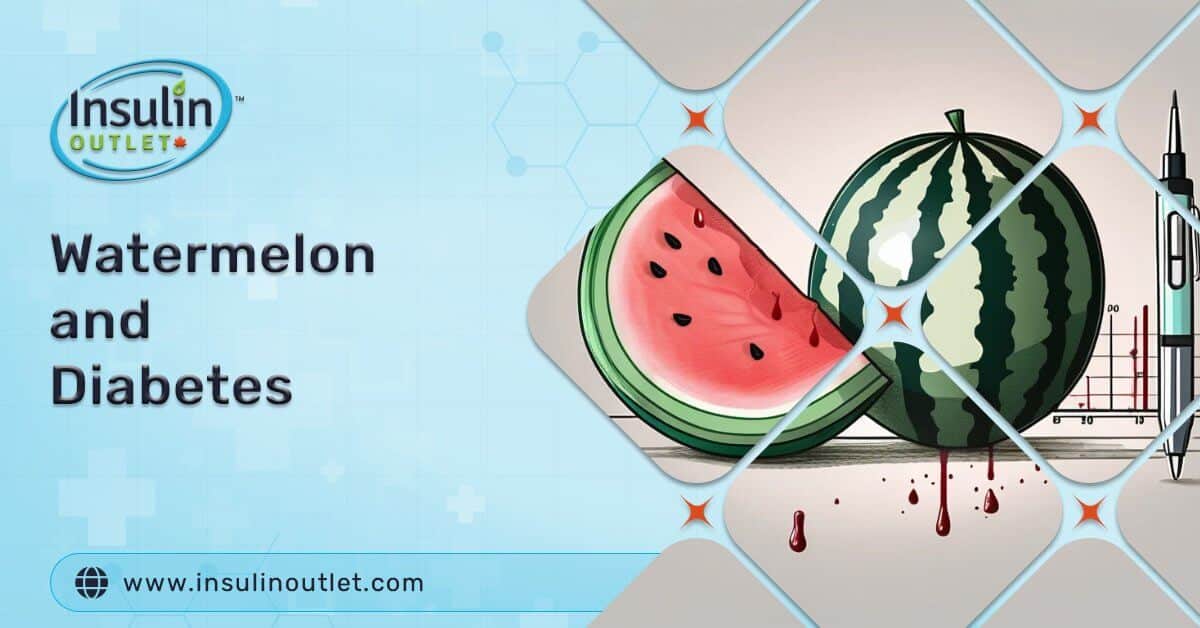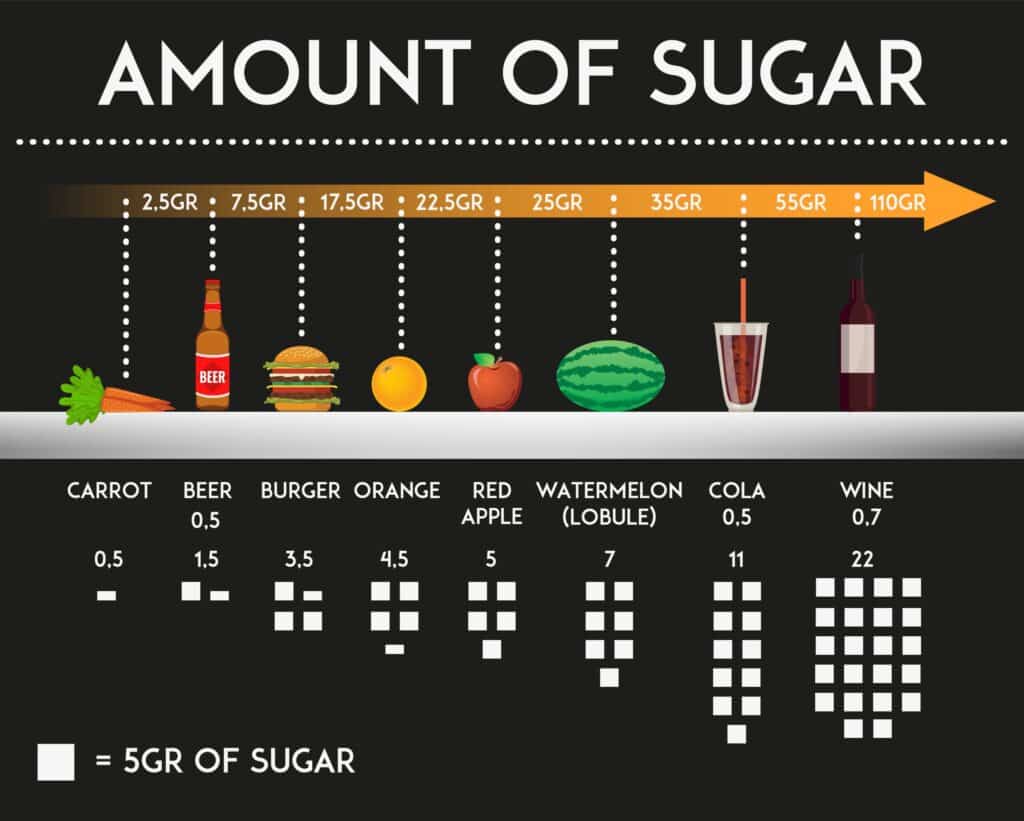
Watermelon is a popular summer fruit. Due to its potassium content and low glycemic index, it’s promoted as a healthy food. We wonder: is it healthy or not?
Does it make someone with diabetes better or worse? Is sugar bad for you? As we study watermelon’s effect on insulin resistance, blood sugar levels, and metabolism, we will investigate its effects on each of these areas. We will compare the product of watermelon on metabolic syndrome (MetS), glucose tolerance (GT), and insulin sensitivity in healthy young adults. We will look at the effect of watermelon consumption in people with type 2 diabetes (T2D) and metabolic syndrome.
Table Of Contents
ToggleWatermelon
A few years ago, the writer of this post was a proud watermelon enthusiast. She was a life-long hunter and gardener who also happened to be diabetic. She also liked to write about what she did with her time and money.
She read the book: “The Watermelon Diet” by Dr. David Katz. (The book describes a diet high in watermelon, usually in the form of ice cream or juice.) The author recommends this diet for people with diabetes who can’t handle the high blood sugar levels that come with many other diets (e.g., Atkins).
She bought into it too quickly and lost her love for eating watermelons, as well as some hope for a long life free from diabetes.
While I am not saying that it is not suitable for people with diabetes to eat some fruit and vegetables (it certainly is), it shouldn’t be something we do every day or even every week. It should be a treat at some point each month, but not something we feel forced to do to avoid insulin spikes, nor should it be something we do just because we are neglecting our health more than usual right now.
And if you use an insulin pump, you know that your body reacts differently than someone without one; and even if you have never taken an insulin injection in your life, your body might respond differently to some foods than someone without diabetes (even if they have had insulin injections). We don’t need people to take our test results at face value when they read about this diet online.
A person wrote this article with diabetes; she said she could tolerate eating bananas on occasion (which I agree with) but does not recommend them as often as she used to because of the type of food they contain (and processed sugars). And yet she cannot live without them — mainly when she writes about how sickly and tired, she gets from all of these sweets (and not from exercise).
I am sure some people are thrilled living on bananas alone — but I am also sure many people would rather eat fewer carbs than eat lots of bananas on occasion — even though their bodies tell them that bananas are good for them. They shouldn’t stop eating them altogether.
Sugar
Sugar is perceived as bad by many people. We need sugar for our daily lives and it is a natural part of our diet. But during specific periods of our lives, the body can’t handle all the sugar from food and instead turns to glucose as its primary source.
The problem with this story: many people are misinformed on this topic (and are not alone). It’s easy to say that watermelon is terrible for diabetes when you’re eating it, but it’s much harder to say that watermelon isn’t good or healthy when you don’t eat it (and if you do eat it, don’t mistake this for healthy!).
There are a few reasons why we think watermelon is beneficial for people with diabetes to consume:
- It contains fiber—which helps regulate your blood sugar levels;
- It contains antioxidants like lycopene and beta-carotene;
- It enhances the digestive process—by slowing down the digestion of sugars, so they don’t go into your bloodstream quickly;
- It may help prevent or treat constipation—which can, in turn, lead to diabetes;
All these things make watermelon beneficial for people with diabetes. It could very well be that people with diabetes are getting more than they need by overeating white sugar (not enough fiber), but what we see here similarly applies with any other food — just because one food doesn’t contain a specific nutrient, doesn’t mean another doesn’t!

Glycemic Index
There is no doubt that the glycemic index (GI) is a powerful tool for people with diabetes to manage their blood sugar levels. It helps you keep your blood glucose levels low and helps prevent complications, for example, by causing insulin release (which raises the blood sugar). Still, it can be harmful to people with diabetes in many cases.
So what does the glycemic index tell us about watermelon?
The GI does not measure how much sugar is in a food item; instead, it measures how much sugar is released from food into your bloodstream. The higher the number, the lower the glycemic index — the more sugar is released into your bloodstream. Using a product with a high GI value is recommended if you are trying to control your blood sugar levels. A product with a low GI value will cause further insulin release, which will increase your blood sugar levels. If you know how much insulin you need to get a certain amount of energy from food and are then eating an item with a high number on its GI but low on its RDI (relative intake) — then you may be at risk of developing diabetes or other complications associated with high blood sugar levels.
We use “watermelon diabetes” as an example because there have been numerous studies done on watermelon diabetes. We know that hydration does have some effect on insulin secretion, so considering watermelon as an example can help us understand why hydration has been shown to affect this phenomenon and also why there are studies that show that using watermelon juice as part of an ingestion regimen could improve glucose control in diabetics.
Is Watermelon Good for Diabetics?
It seems that watermelon is a portion of adequate food for people with diabetes. It helps regulate blood sugar levels and even helps to prevent diabetes. This concludes two studies by researchers in the United States and Canada. They found that drinking watermelon juice can help users control their diabetes — even if they already have diabetes. The American study, published in the journal Public Health Nutrition, found that participants who drank watermelon juice (10 ounces) reduced their glucose levels by an average of 21 percent. The Canadian study, published in the Journal of Family Medicine & Primary Care, found similarly positive results: participants who consumed pure watermelon juice reduced their blood sugar levels by an average of 28 percent.
The researchers say there is a link between diabetes and high blood sugar levels — a condition called hyperglycemia. Hyperglycemia occurs when your blood sugar level becomes too high. When it does so, it can lead to symptoms such as fatigue, poor memory, low energy, and perhaps eventually a type of kidney disease called diabetes insipidus.
The research team says that drinking pure distilled water instead of fruit juices or sodas might be a more effective way to reduce toxic sugars in the body — but this is not recommended for diabetic patients without regular access to fresh fruit juices or sodas because it could cause harm or even death.

Conclusion
Watermelon: A fruit with a long history of being associated with good health and symbolizing fertility and rebirth.
Numerous scientific studies have proven that watermelons may promote various health benefits, such as lowering blood pressure, cholesterol levels, and triglycerides, protecting against type 2 diabetes, reducing blood pressure and heart disease, and improving bone density and immunity.
It has long been known that watermelons contain vitamin C, which is thought to have antioxidant properties. However, while they are often promoted as a “good source” of vitamin C, they have also been observed to increase the risk of diabetes mellitus.
The most recent studies on this topic have shown that watermelons contain higher levels of vitamin C than oranges (which do not contain any). This is important because it indicates that the consumption of watermelon is potentially harmful to those with diabetes mellitus.
Whenever making changes to diet or lifestyle, every person with diabetes should console their doctor first. It is essential to seek medical guidance when making any changes, as your healthcare provider can weigh in every factor when making a recommendation. It would not be proper to take the advice of a random article on the internet and seek appropriate and professional medical advice for any changes to maintaining your glucose levels.
Trulicity Dulaglutide
$294.99Humira (Adalimumab)
$2,150.00Share:












